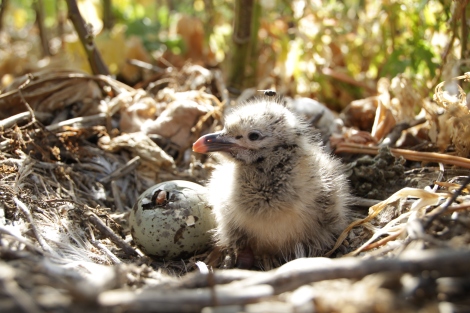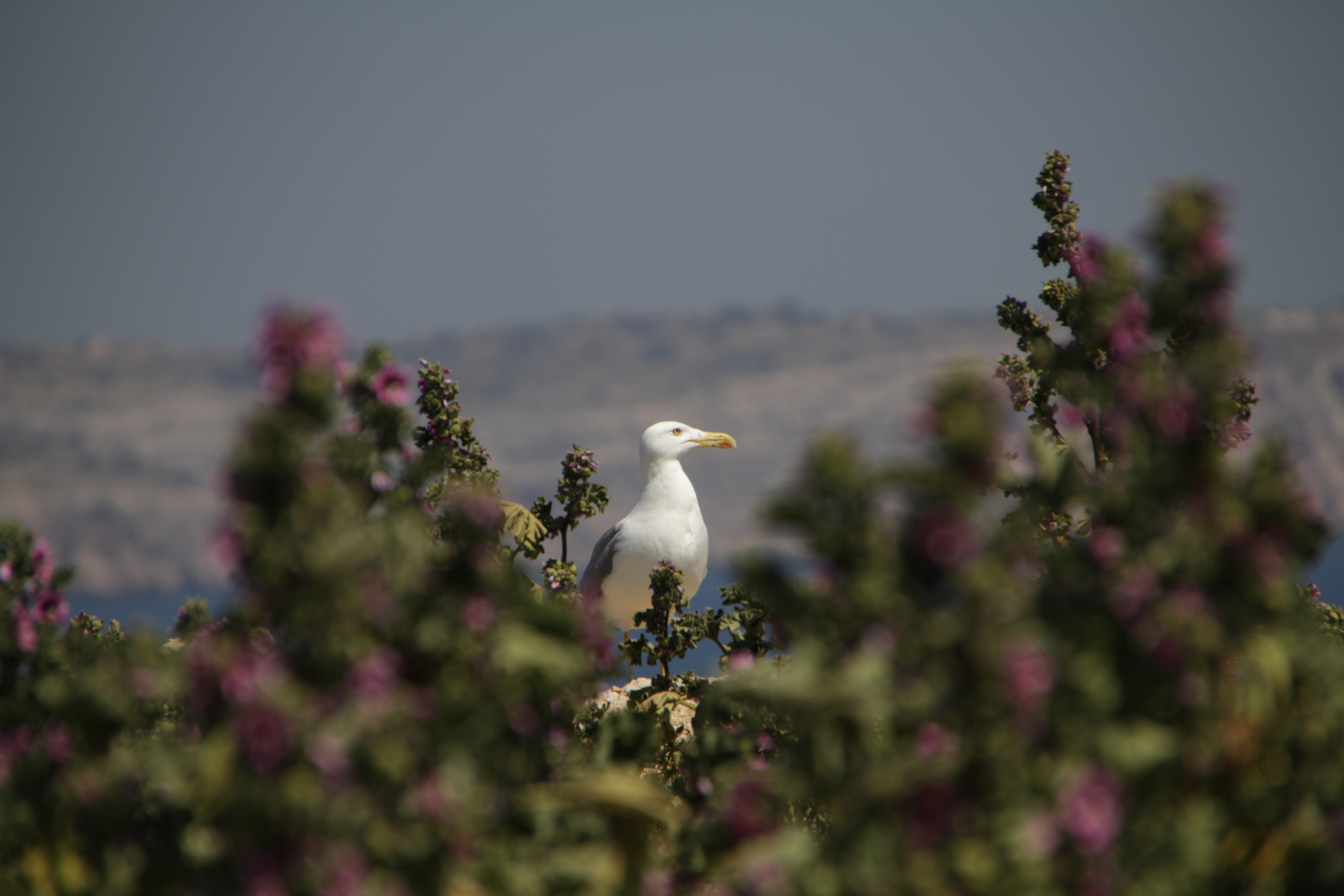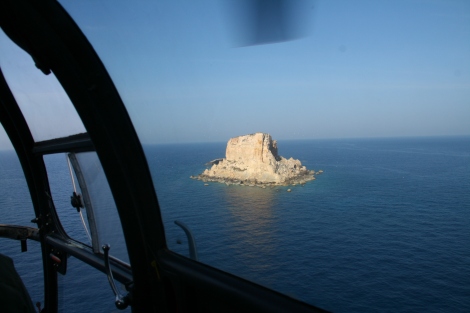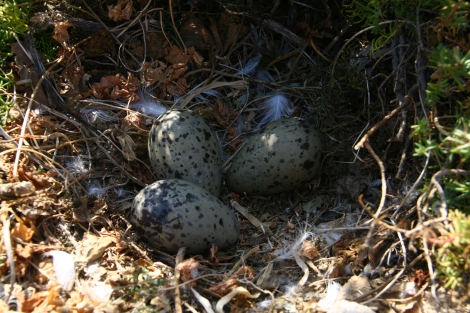A blog by Paulo Lago
The first week of April the BirdLife Malta research team went to Filfla to take the annual Yellow legged gull (Larus michahellis) census. Filfla is the most important site breeding site in the Maltese islands for Yellow legged gull. Since 1982 Filfla has been visited yearly to monitor the Yellow legged gull’s colony.
The first week of April the BirdLife Malta research team went to Filfla to take the annual Yellow legged gull (Larus michahellis) census. Filfla is the most important site breeding site in the Maltese islands for Yellow legged gull. Since 1982 Filfla has been visited yearly to monitor the Yellow legged gull’s colony.
The team reached the plateau of the island in a helicopter provided by AFM (Armed Forces of Malta). Gull nests were mapped with GPS on the plateau and regurgitates samples were collected.
Nest were found all around the plateau on the ground. In general every nest has two or three eggs. At this time of the season the majority of gulls are incubating the eggs in the nest. But some eggs were already hatched and some small chicks can be seen.
Nest of Yellow legged gull (Larus michahellis) with three eggs. Notice the egg on the right is in the process of hatching (small hole on the top).

Nest of Yellow legged gull (Larus michahellis) with one egg in the process of hatching and one chick.
Late in the season the BirdLife team will come back to the Filfla plateau to count and ring the Yellow legged gull chicks. Then we will know how many eggs hatched successfully.
– Paulo Lago
Project team leaving the Filfla plateau.
If you would like to help support BirdLife Malta’s work researching the islands breeding seabirds, you can make a donation online or you can join BirdLife Malta and become a supporting member today.





